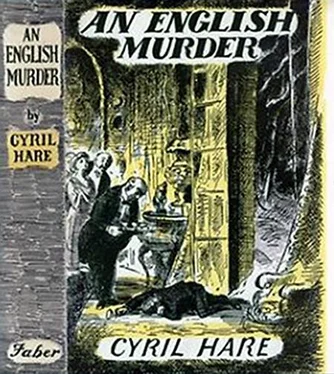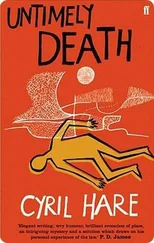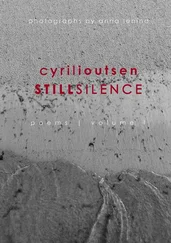The butler turned round once more and looked at her in silence for a moment.
"Someone's been telling tales," he said finally.
"Well, are we?"
"You've got the colour for it," said Briggs, his eyes on his daughter's hair. "And more than that I will not say. Your mother's great-auntie used to drop hints about goings-on in the sixth viscount's days, but I never paid any attention to them, and my advice to you is to do the same. You've enough on your plate already. But if the idea gives you some sort of fellow feeling with his lordship, I've no objection. Off with you now! I don't want anyone to come in and find you here."
Susan vanished, and Briggs, his work completed, began arranging the silver on a tray. He was checking it over when the pantry door opened again.
"Oh, Briggs, I am sorry to bother you." It was Camilla, her face rather flushed, her manner unusually disturbed.
"Not at all, my lady. Were you requiring anything?" said Briggs, hastily removing his apron and assuming his coat.
"Yes. It's so stupid of me, I find I've forgotten to pack a shoe-horn. I know you keep every kind of treasure here. Have you got such a thing, I could borrow?"
"A shoe-horn, my lady?" Briggs considered for a moment. "Yes, I think I could find you one."
He pulled open the door of one of the cupboards, and almost at once produced an elegantly made silver shoe-horn, which he polished with his leather before handing it to her.
"What a lovely little thing!" Camilla exclaimed. "Where does it come from?"
"A coming-of-age present to his late lordship," Briggs explained. "I don't suppose it has ever been used."
"You are a marvel, Briggs. How on earth do you know where everything is?"
"I've lived with them a long time, my lady. I arranged these shelves when I was a pantry-boy, and I suppose I could lay my hands on anything."
Camilla walked the length of the room, throwing open one cupboard after another.
"Marvellous!" she repeated. "It doesn't look as though a thing had changed since I used to come in here and interrupt you in your work when I was a child."
"There's certainly no silver missing since then, my lady, and not much glass broken either."
"It's a lovely display. Are those Queen Anne forks, Briggs?"
"William and Mary, my lady.… Would you excuse me, my lady, but I've got to take these things through to the dining-room to lay the table."
"Of course, Briggs. I've been interrupting you again, just as I used to. What time is dinner?"
"Eight o'clock, my lady."
"I needn't go up to dress yet awhile, then. Can you trust me not to steal any silver if I poke about here a little? I'd forgotten how fascinating it all was."
"That will be all right, of course, my lady," said Briggs, as he picked up the heavy tray. He paused at the door to say, "Your ladyship mentioned dressing for dinner. If I may venture to say so, a sleeveless dress is not recommended for this evening. The dining-room, I fear, will be somewhat chilly."
When he returned to the pantry, a quarter of an hour later, Lady Camilla had gone, but the servants' quarters were still not free of invasion from the other side of the house. Along the stone-flagged passage that led to the kitchen he could hear the clack of high-heeled shoes, and Mrs. Carstairs' voice floated towards him.
"Dear Warbeck!" he heard. "Forgive me, cook, but I couldn't resist poking my nose in! I've been running simply all over the house, renewing old associations. Dear me! What a lot of good meals I've seen being cooked in this wonderful old kitchen of yours!"
From what he could hear of the murmured replies to Mrs. Carstairs' advances, Briggs judged that her reception had been no more than barely civil. The cook, who was not, like himself, of the old regime, would be far too concerned with the exigencies of preparing Christmas Eve dinner on her antiquated range to welcome interruption. Before long, Mrs. Carstairs gave up her attempts at fraternization and returned the way she had come. She paused at the pantry door to give him the benefit of her presence.
"Oh, Briggs, I was just explaining to the cook, I've been on the prowl all over this dear old house! And really, you know, I think you people have the best of it. There's an atmosphere of antiquity about this wing that is quite unique!"
"It is a very cold atmosphere in this weather, madam," said the butler unsympathetically.
"Yes, yes, of course, I know it is. And some people feel cold so much more than others. But all the same, Briggs, you must admit that it is a privilege to work in the original Warbeck Hall, in a room actually built by Perkin Warbeck himself——"
"Ah no, madame, I must protest! That is a myth, put about by the makers of guide-books! It has no historical foundation whatever."
The voice came from behind her and she turned in surprise.
"Mr. Bottling! You gave me quite a shock!"
"Dr. Bottwink is the name, madame."
"Of course. I'm so stupid about names, I'm afraid, especially foreign ones. I had no idea you were there. Where did you spring from?"
Dr. Bottwink pointed upwards.
"From the muniment room," he explained. "It is immediately above our heads. This little staircase in the wall behind me communicates directly with it."
"Why, yes! I had quite forgotten it. 'Perkin's staircase' we used to call it. I suppose you would say that was wrong too?"
"I regret, madame, much as it must distress you and Briggs, it is quite wrong. None the less, this pantry is an interesting old piece of building. Did you know that there was just one little bit of the original linen-fold panelling left?"
"Really," said Mrs. Carstairs peevishly, "I never thought I should have anything told me about Warbeck by a stranger. I really think you must be mistaken, Mr.—er, Dr.——"
"But it is there, none the less, madame. Just a little piece, at the back of that cupboard next to the sink. It is nothing to look at—it is badly damaged, and has been painted over many times in the last few centuries, but it is undoubtedly a genuine morsel of linen-fold panelling and coeval with the fabric of the house. If you are interested, I will show it to you now."
"If it is in the state you describe, it's hardly worth while wasting time to look at it," said Mrs. Carstairs shortly.
"True, madame. It is of little interest—except that, unlike Perkin Warbeck, it is genuine." And with this Parthian shot the historian withdrew.
"Really!" Mrs. Carstairs was breathing heavily in indignation. "This gentleman seems to have been making free with your pantry in a remarkable way, Briggs. It seems most uncalled for. Why, anything might happen in a room full of valuables like this."
"Well, madam," said Briggs tolerantly, "one must make allowances. The gentleman is a foreigner, after all. He certainly has a craze for anything that's really old and out of date. He told me that was why he was so interested in the British constitution."
"That's one thing foreigners will never understand," said Mrs. Carstairs emphatically. "They imagine that we are still living in the past. They don't realize the great changes that have come over the country in the last few years and that there are greater ones still to come."
"Quite, madam," said Briggs, with a noticeable lack of enthusiasm.
"Dinner is at eight as usual, I suppose?"
"Yes, madam. The dressing gong will be sounded at half-past seven."
The difference between Briggs's feelings for Mrs. Carstairs and for Lady Camilla Prendergast might be gauged by the fact that he elected to let her go without any warning as to the probable temperature of the dining-room.
There was still a multitude of tasks to be performed before dinner was ready to be served. The butler's next move was to the cellar. He returned some five minutes later, tenderly bearing a bottle heavily encrusted with cobwebs, and his heart sank to see yet another visitor in the pantry. He sighed with relief when he saw that it was only Sergeant Rogers.
Читать дальше












